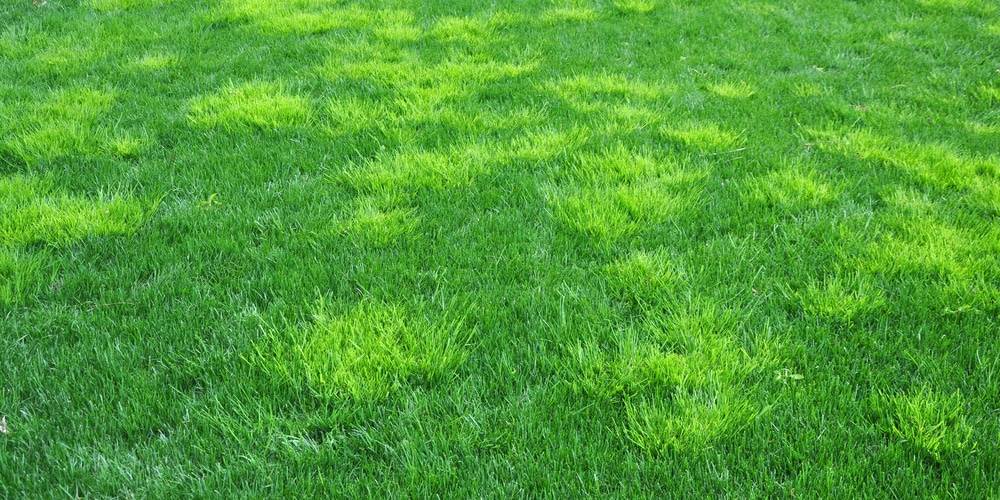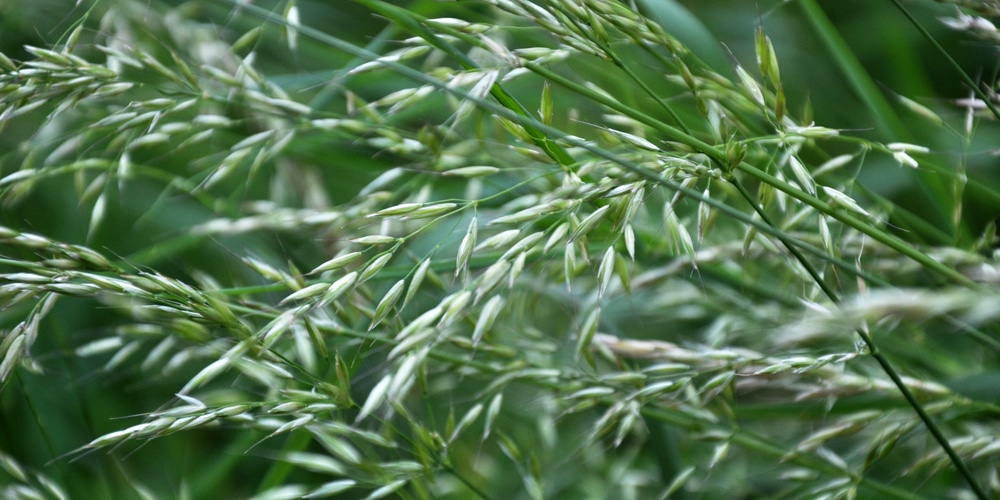Poa trivialis is a rough-sheathed blue lawn, a non-native European species, that grows in low, soggy to wet areas like stream banks to springs throughout New England. The sandpapery sheaths, the leaf base around the stem, give it its common term. Note that it’s a perennial grass, meaning it returns year after year.
It prefers the cooler temperatures and wet spring soil, but as summer heats up, it goes inert, turning brown and disappearing. After which, it leaves bare patches on your lawn that fool you into believing it’s dead. But only appears to be dead; beneath the stems, the soil, and the roots that are simply hedging their bets, hoping for chilly weather to allow them to re-emerge and take charge on your lawn.
Why you’d not like Poa Trivialis on your lawn

Poa trivialis, commonly referred to as Poa triv, is a perennial weed plant that you would not want to grow in one’s fescue lawn. With its cousin, Poa annua, also known as annual bluegrass, they are two of the most problematic lawn weeds to regulate and treat.
What is the best way to identify it?
Poa trivialis recognition necessitates a close examination of the plant. The weed is a lighter green than your grass, making it unattractive because of its apparent presence among the dark lawns. To worsen, huge bare spots appear when its blades drop dead, and the plant becomes dormant during summer.
But face the facts: the rough bluegrass is lying low. The issue is that even undergrowth control, it could be hard to differentiate from that other perennial ryegrass, commonly known as Lolium perenne or bluegrasses.
What is the root of the problem?
Drought stress and heavy traffic are not good for rough bluegrass. When the hot weather sets in and you begin using your grass more frequently, this is when the phone calls are trying to pile up. Because of the foot traffic and higher temperatures, a spot of poa trivialis can resemble a turf illness or grub-damaged grass.
Poa trivialis thrives in a narrow range of conditions. Once the season is cooler and moist, it develops most aggressively. You can find huge strands of grass in moist soils. But since poa trivialis likes moist conditions, it will most probably expand in shady areas of your grass.
How to treat Poa trivialis
Controlling Poa trivialis should begin as soon as you notice it on the lawn. It will only spread and gradually take over the entire lawn if you don’t do something about it. To limit rough terrain, growing environments and cultural management are the most important factors to consider.
Rough bluegrass will likely outpace other turfgrasses in a sleazy, damp location, making control extremely difficult. It will be less competitive in properly-drained soils, which are watered only to avoid the tremendous pressure of beneficial organisms, and infestations could perhaps decrease over time.
Although one isolated report revealed that Fe fertilization and foliar Mg reduced modest outbreaks of rough bluegrass seeds, there are no more reports of similar outcomes, so this tactic is safe to dismiss.
Velocity
The only weedkiller currently approved for rough bluegrass selective control in cool-season grass fields is Velocity, scientifically termed bispyribac-sodium; Nufarm. Many studies have demonstrated its efficacy in various applications and the risk of rough bluegrass restoration, which limits control.
Velocity’s efficacy rises with air temperatures above 75 degrees F; therefore, it’s recommended to start treatment in the spring and continue through the summer.
Non-selective control
The bluegrass is most constantly controlled using glyphosate accompanied by reseeding, even though it’s hard to hear. Even so, it is not an easy task. Applying a nonselective herbicide to rough bluegrass in late summer corresponds to the suggested fall sowing for cool-season lawns, but spring provides the greatest control.
Tenacity
Tenacity, or rather mesotrione, Syngenta, is a Poa triv herbicide discovered to be largely unsuccessful in managing rough bluegrass. However, most users have reported utilizing Tenacity to significantly weaken Poa trivialis, causing it to propagate much more slowly.
An integrated technique
To fully control rough terrain, you will require various interventions. Control will be much more challenging in shaded zones with frequent rainfall since the cultural strategies for control are already limited.
Take into account caring for rough bluegrass if it doesn’t suffer too much during the summer. If you want to regulate rough bluegrass, you need to prioritize limiting irrigation and improve drainage over it. Don’t be frightened to get physical with your desirable species because they are more considerate of traffic than the rough bluegrass.
How to prevent Poa trivialis
Poa trivialis is difficult to eradicate, but you can use cultural regulations to keep your grass bulky and healthy when you have it under regulation. It helps prevent Poa trivialis and other weeds from competing with the lush, long-lasting grass.
Don’t mow your lawn too short. Maintain a grass height of at least three inches or more. It shades the soil better as it grows taller, preventing weed seeds from germinating. Mowing your lawn too short stresses it out, making it vulnerable to weed intrusions.
* Water in a proper manner. Once it gets to misting a well-defined lawn, depth and infrequency are the aims of the game. Roots must grow healthy and deep; however, if you water the lawn too often, it won’t waste energy drilling down for water content, and it will be too tiring to resist weeds.
* Each spring, overseed or reseed with bunchgrasses. They won’t spread because they don’t have stolons or rhizomes, so they’ll stay put. With time, they dominate other grasses on the lawn.
* Accept it. Wave the white flag as a last resort. Consider nurturing your rough bluegrass and allowing it to completely cover the lawn as resilient chilly-weather grass if that doesn’t die during summer.
Take away
This bothersome grass retains a largely unknown status despite outreach efforts and research. Collaborating with rough bluegrass can feel a lot like educating people about the possibility of alien abduction: Just those who have had a close call take notes, and the rest of the population believes you need medica.
